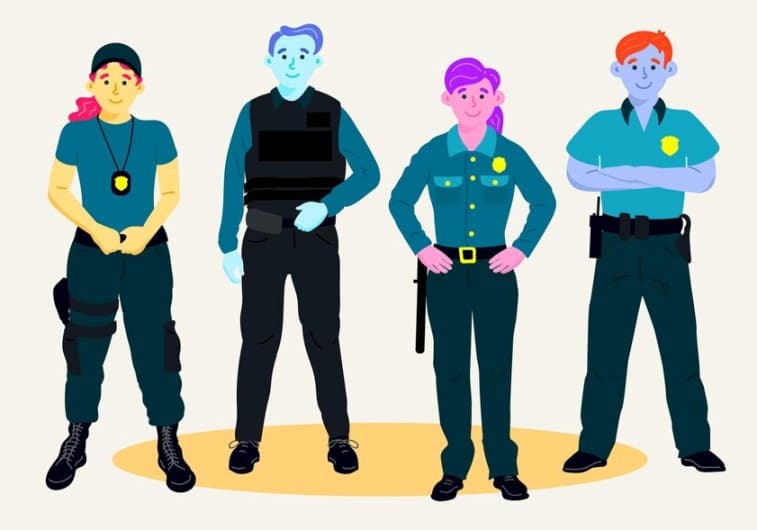Undercover cops are not allowed to engage in entrapment or commit crimes themselves. Undercover cops play a crucial role in law enforcement by infiltrating criminal organizations to gather information and gather evidence.
However, it is essential to set clear boundaries to ensure their actions remain legal and ethical. While undercover, officers are not permitted to entrap suspects or engage in criminal activities themselves. Their mission is to observe and gather evidence to build a case, not to incite criminal behavior.
This distinction helps maintain the integrity of the legal system while ensuring the safety of all involved parties. Understanding these limitations is crucial for successful undercover operations and upholding the principles of justice.
Restrictions On Undercover Cops
Undercover police officers play a vital role in maintaining law and order by infiltrating criminal organizations and gathering key intelligence. However, their covert operations are subject to legal limitations and guidelines that aim to ensure their actions stay within the boundaries of the law.
By understanding these restrictions, we can gain insight into the extent to which undercover cops are allowed to operate.
Read Also: Difference Between Manslaughter and Involuntary Manslaughter
Legal Limitations And Guidelines
Undercover police work is governed by strict legal parameters to prevent abuse of power and the violation of civil liberties. These limitations are designed to protect the rights of individuals targeted by undercover operations while still allowing officers to carry out their investigations effectively.
One of the primary legal limitations is the requirement for undercover cops to obtain proper authorization. This typically involves securing a court order or obtaining a warrant from a judge, demonstrating reasonable grounds for the undercover operation.
Undercover officers must also stay within the scope of their authorized operation. This means they are only allowed to engage in activities directly related to their investigation and not stray into unrelated matters. The limitation aims to prevent fishing expeditions and unjustified intrusions into the private lives of individuals.
An additional legal limitation is that undercover cops cannot fabricate evidence or induce individuals into committing crimes they would not have committed otherwise. This restriction ensures that the officers’ actions do not cross the line into entrapment, where individuals are coerced into unlawful behavior. The evidence collected by undercover officers must be genuine and lawfully obtained.
Prohibited Activities
While undercover cops can engage in various activities to gather information, there are certain actions that they are explicitly prohibited from undertaking.
For instance, undercover officers are not allowed to use excessive force or engage in acts of violence. Their purpose is to gather intelligence and not to act as enforcers of the law. Any use of force must be strictly necessary and proportionate to the situation at hand.
Furthermore, undercover cops are prohibited from engaging in acts that would violate an individual’s fundamental rights or discriminate against them based on protected characteristics such as race, gender, or religion. These officers must treat all individuals they encounter with fairness and respect, upholding the principles of justice and equality.
In addition, undercover cops are generally not permitted to engage in sexual relationships with individuals they target as part of their investigation. This restriction helps maintain professional boundaries and prevents the exploitation or manipulation of vulnerable individuals.
It is worth noting that the specific restrictions placed on undercover cops may vary by jurisdiction and the nature of the operation. It is the responsibility of law enforcement agencies to provide clear guidance and training to ensure officers understand the boundaries they must operate within.
See More: What’s The Difference Between A Felony And A Misdemeanor?
Ethical Concerns
The role of undercover police officers is essential in maintaining law and order. However, their tactics often raise ethical concerns. In this section, we will explore two major ethical concerns associated with undercover operations: privacy invasion and entrapment.
Privacy Invasion
Undercover cops walk a fine line between gathering evidence and invading people’s privacy. While they may need to infiltrate criminal organizations and gather information, they are not allowed to violate citizens’ constitutional rights. This means that undercover officers must be cautious about crossing boundaries when conducting surveillance or gathering evidence.
Privacy invasion can be defined as the infringement upon an individual’s reasonable expectation of their right to privacy. To avoid overstepping these bounds, undercover officers are required to obtain proper authorization before engaging in activities that could potentially intrude upon someone’s privacy.
Entrapment
Entrapment is another ethical concern that undercover cops must navigate. Entrapment occurs when law enforcement officers induce or coax individuals into committing illegal acts that they would not have otherwise engaged in.
This practice is strictly prohibited to protect the rights of individuals and ensure the fairness of judicial proceedings. Undercover officers are tasked with gathering evidence and gaining the trust of criminals, but they must refrain from pushing them to commit crimes they would not have ordinarily committed.
By doing so, law enforcement agencies can maintain the integrity of their investigations and prevent potential entrapment defenses from being used in court.
Conclusion
Undercover police officers have limitations to ensure they maintain the integrity of their investigations while respecting the law. These restrictions include not committing crimes, avoiding entrapment, and upholding citizens’ rights. This balance allows law enforcement to gather crucial evidence and protect public safety, all within a legal framework.
Transparency and accountability are key in ensuring the public’s trust in these covert operations.
